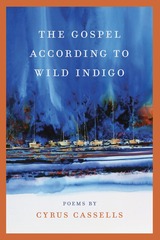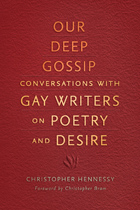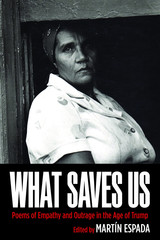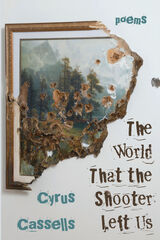
Finalist for the Helen C. Smith Award for the Best Book of Poetry from the Texas Institute of Letters, 2019
Nominated for the NAACP Image Award for Outstanding Literature in Poetry, 2019
Consisting of two dynamic song cycles, Cyrus Cassells’s sixth poetry volume, The Gospel according to Wild Indigo, keeps the reader on edge with a timeless and beguiling feast of language that fuses together history, memory, and family.
The first cycle, rooted in the culture of the Gullah people of Charleston and the Sea Islands, celebrates the resilience of the rice- and indigo-working slaves and their descendants who have forged a unique Africa-inspired language and culture. Set against a Mediterranean backdrop, the second cycle explores themes of pilgrimage, love, and loss, concluding with a pair of elegies to the poet’s mother and the many men lost in the juggernaut of the AIDS crisis. Throughout, Cassells invites the reader to consider the duality of grief and love, as well as the shifting connections between past and present.
Cassells’s language is always striking, unpredictable, and beautiful, conjuring a world not only of “placid seagulls perched / in priest-gentle pines / like festive Christmas ornaments” but also one where “Death prevailed, / tireless as a forest partisan.” His poems transport the reader across time, space, and language, searching constantly not just for empathy but also for the human spirit in its triumph, for “our human joy, / laced with an ageless grieving.”



This is an anthology of poems in the Age of Trump—and much more than Trump. These are poems that either embody or express a sense of empathy or outrage, both prior to and following his election, since it is empathy the president lacks and outrage he provokes.
There is an extraordinary diversity of voices here. The ninety-three poets featured include Elizabeth Alexander, Julia Alvarez, Richard Blanco, Carolyn Forché, Aracelis Girmay, Donald Hall, Juan Felipe Herrera, Yusef Komunyakaa, Naomi Shihab Nye, Marge Piercy, Robert Pinsky, Danez Smith, Patricia Smith, Brian Turner, Ocean Vuong, Bruce Weigl, and Eleanor Wilner. They speak of persecuted and scapegoated immigrants. They bear witness to violence: police brutality against African Americans, mass shootings in a school or synagogue, the rage inflicted on women everywhere. They testify to poverty: the waitress surviving on leftovers at the restaurant, the battles of a teacher in a shelter for homeless mothers, the emergency-room doctor listening to the heartbeats of his patients. There are voices of labor, in the factory and the fields. There are prophetic voices, imploring us to imagine the world we will leave behind in ruins lest we speak and act.
However, this is not merely a collection of grievances. The poets build bridges. One poet steps up to translate in Arabic at the airport; another walks through the city and sees her immigrant past in the immigrant present; another declaims a musical manifesto after the hurricane that devastated his island; another evokes a demonstration in the street, shouting in an ecstasy of defiance. The poets take back the language, resisting the demagogic corruption of words themselves. They assert our common humanity in the face of dehumanization.

In the aftermath of the Stand Your Ground killing of his close friend’s father, poet Cassells explores, in his most fearless book to date, the brutality, bigotry, and betrayal at the heart of current America. Taking his cue from the Civil Rights and Vietnam War era poets and songwriters who inspired him in his youth, Cassells presents The World That the Shooter Left Us, a frank, bulletin-fierce indictment of unraveling democracy in an embattled America, in a world still haunted by slavery, by Guernica, Hiroshima, and the Holocaust, by climate catastrophe, by countless battles, borders, and broken promises—adding new grit, fire, and luster to his forty-year career as a dedicated and vital American poet.
READERS
Browse our collection.
PUBLISHERS
See BiblioVault's publisher services.
STUDENT SERVICES
Files for college accessibility offices.
UChicago Accessibility Resources
home | accessibility | search | about | contact us
BiblioVault ® 2001 - 2024
The University of Chicago Press









